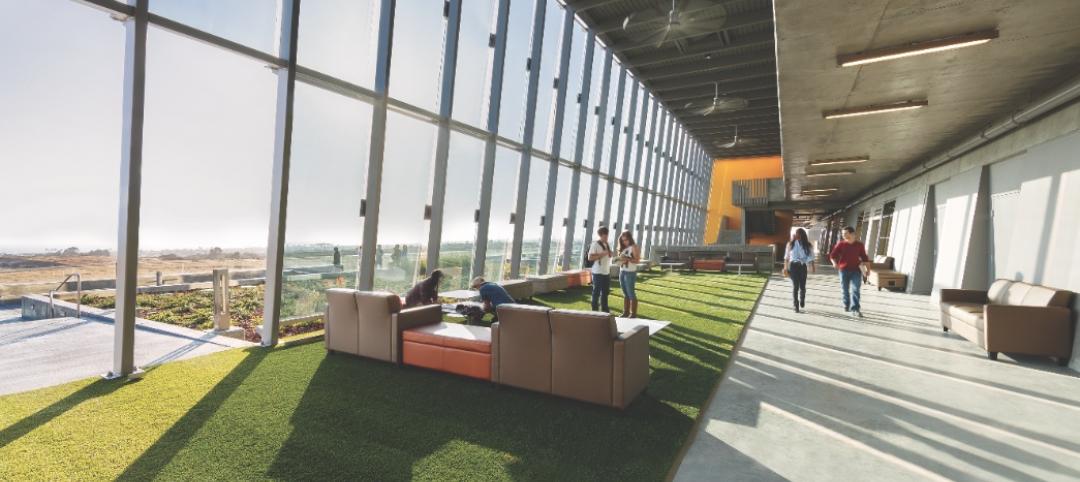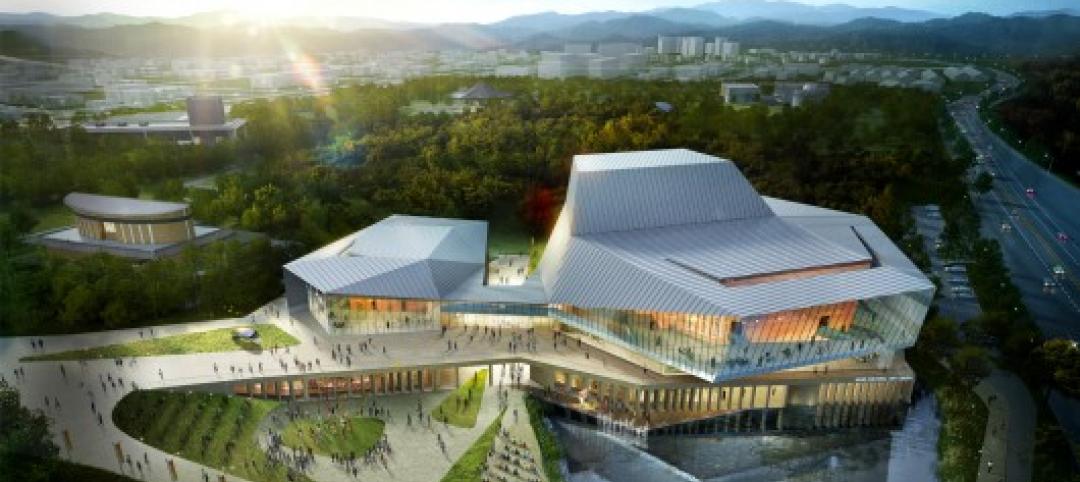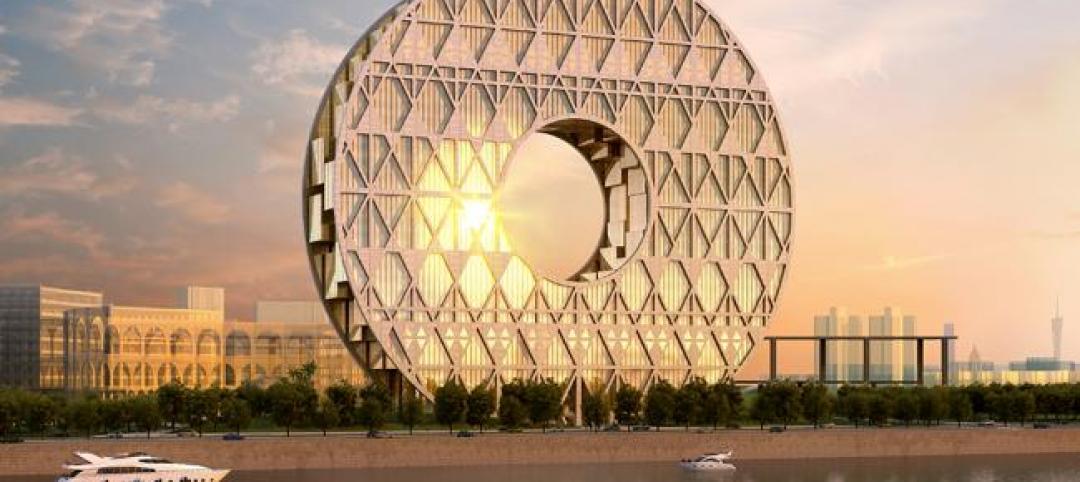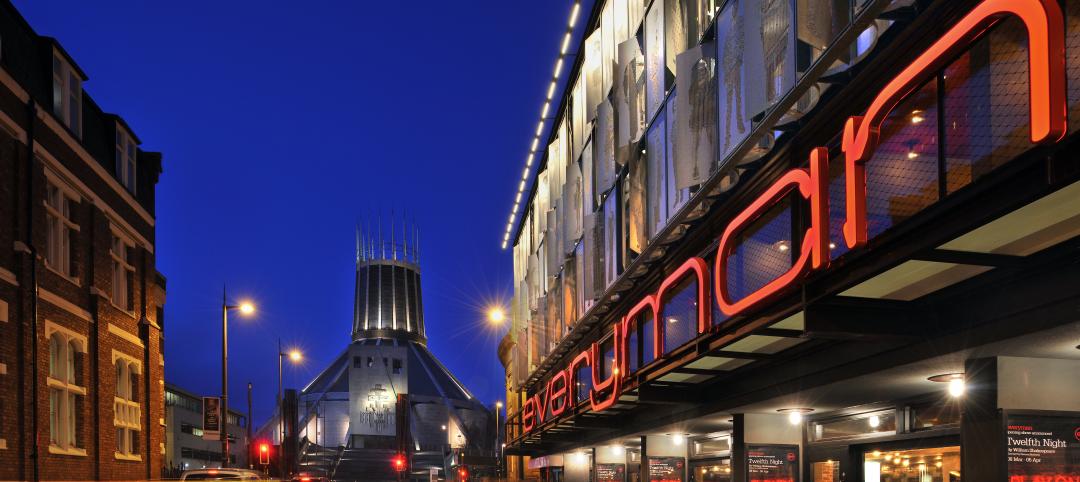Cincinnati Ballet had become a victim of its own success, according to company president and CEO Scott Altman. “We were bursting at the seams in our old building. We had simply outgrown the facility,” Altman told the Cincinnati Enquirer.
In September, Cincinnati Ballet moved into a new home that can accommodate the growing needs of its two dance companies and dance academy: the purpose-built $30.8 million Margaret and Michael Valentine Center for Dance.
Expansive windows allow natural light to fill almost every space in the building, including the offices and the wardrobe department, which had been housed underground in the company’s former home. Some studios look out onto expanses of trees; others offer views of downtown.

At 62,000 square feet, the Margaret and Michael Valentine Center for Dance is more than 60% larger than its previous home. The center includes nine dance studios, one of which has a mobility lift system that provides a new level of mobility to students with physical disabilities. The facility also features large dressing rooms, public lounges, break rooms for performers, a 140-seat performance space, and a recording studio.

The new building consists of nine studios. Photo: Brad Feinknopf

“This new Ballet Center is a dream,” Altman said.
The owners and the architects, GBBN, wanted the open, accessible design to embody Cincinnati Ballet’s mission to break down the stereotype that ballet is only for a certain group of people—and illustrate the idea that dance is for everyone. For its design, GBBN received an AIA Cincinnati Architecture Honor Award.

The Margaret and Michael Valentine Center for Dance joins a local arts district that includes other major cultural institutions, including the Cincinnati Art Museum and the Cincinnati Playhouse in the Park.
Owner: Cincinnati Ballet
Design architect and architect of record: GBBN
MEP engineer: dbHMS
Structural engineer: Schaefer
General contractor/construction manager: Messer Construction
Related Stories
| Jan 2, 2015
Construction put in place enjoyed healthy gains in 2014
Construction consultant FMI foresees—with some caveats—continuing growth in the office, lodging, and manufacturing sectors. But funding uncertainties raise red flags in education and healthcare.
| Dec 28, 2014
AIA course: Enhancing interior comfort while improving overall building efficacy
Providing more comfortable conditions to building occupants has become a top priority in today’s interior designs. This course is worth 1.0 AIA LU/HSW.
| Nov 26, 2014
USITT Selects Bahrain National Theatre for Honor Award
The Bahrain National Theatre will be recognized with an Honor Award by the United States Institute for Theatre Technology (USITT) in 2015.
| Nov 18, 2014
Fan of the High Line? Check out NYC's next public park plan (hint: it floats)
Backed by billionaire Barry Diller, the $170 million "floating park" is planned for the Hudson River, and will contain wooded areas and three performance venues.
| Nov 17, 2014
'Folded facade' proposal wins cultural arts center competition in South Korea
The winning scheme by Seoul-based Designcamp Moonpark features a dramatic folded facade that takes visual cues from the landscape.
| Oct 23, 2014
China's 'weird' buildings: President Xi Jinping wants no more of them
During a literary symposium in Beijing, Chinese President Xi Jinping urged architects, authors, actors, and other artists to produce work with "artistic and moral value."
| Oct 20, 2014
UK's best new building: Everyman Theatre wins RIBA Stirling Prize 2014
The new Everyman Theatre in Liverpool by Haworth Tompkins has won the coveted RIBA Stirling Prize 2014 for the best building of the year. Now in its 19th year, the RIBA Stirling Prize is the UK’s most prestigious architecture prize.
| Oct 16, 2014
Perkins+Will white paper examines alternatives to flame retardant building materials
The white paper includes a list of 193 flame retardants, including 29 discovered in building and household products, 50 found in the indoor environment, and 33 in human blood, milk, and tissues.
| Oct 15, 2014
Harvard launches ‘design-centric’ center for green buildings and cities
The impetus behind Harvard's Center for Green Buildings and Cities is what the design school’s dean, Mohsen Mostafavi, describes as a “rapidly urbanizing global economy,” in which cities are building new structures “on a massive scale.”















